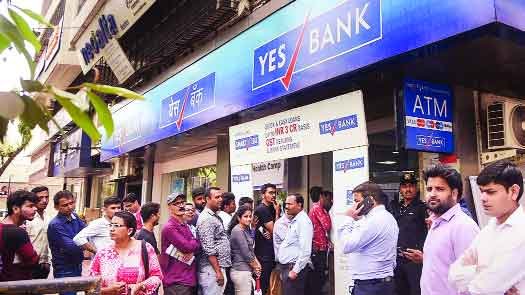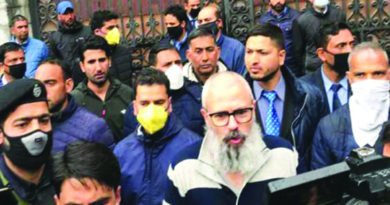When yes became no!
The Government may have saved Yes Bank and prevented a run on banks but public confidence is at an all-time low
The Government-inspired rescue plan for Yes Bank, which calls upon the State Bank of India (SBI) to buy up to 49 per cent of its stake besides making an initial investment of upto Rs 2,450 crore, appears to have saved the investors and even equity holders to a certain degree but has ruined bond holders. While the crisis has led to serious questions being asked about how the bonds were sold by bankers, the depositors have been breathing a sigh of relief. Still, there are several unanswered questions surrounding the collapse of Yes Bank. At least the authorities were able to lure co-founder and former boss Rana Kapoor back to Indian shores before he could run away to the den of criminals and conmen, London. It is possible that Kapoor’s questioning will reveal why and what he did and who he worked in cahoots with to perpetuate the fraud allegedly conducted by him. But the image of Indian banks, both public and private, has taken a huge hit in the light of Yes Bank’s collapse. This came close on the heels of the failure of the Punjab and Maharashtra Cooperative Bank (PMC Bank) a few months ago. While the Yes Bank story played out in slow motion, it appears that elements both within the bank and outside tried to scupper any rescue deal being structured without Kapoor retaining a modicum of control. This was likely done to provide a protective shield to the kickbacks that were paid to firms linked with Kapoor and his family in lieu of loans being issued to companies whose profile would have scared away even the most bullish of bankers. Yes Bank continued to provide credit to some deeply distressed firms.
That said, it is important for private depositors and large corporate account holders to maintain a level of confidence in Indian banking. The Ministry of Finance and the Reserve Bank of India (RBI) have to make the right noises. A probe by the Central Bureau of Investigation (CBI) is underway. But this isn’t sufficient to reassure the depositors that they are trying their best. Criminal charges have to be framed against those bankers found guilty of corruption and fraud. At the same time, cash deposits in automated teller machines and bank branches must be made available so that everyone knows that their money is safe.
The Pioneer




